10 Benefits of Artificial Intelligence in Healthcare
XY.AI Labs Team
August 23, 2025
Reading Time10 mins
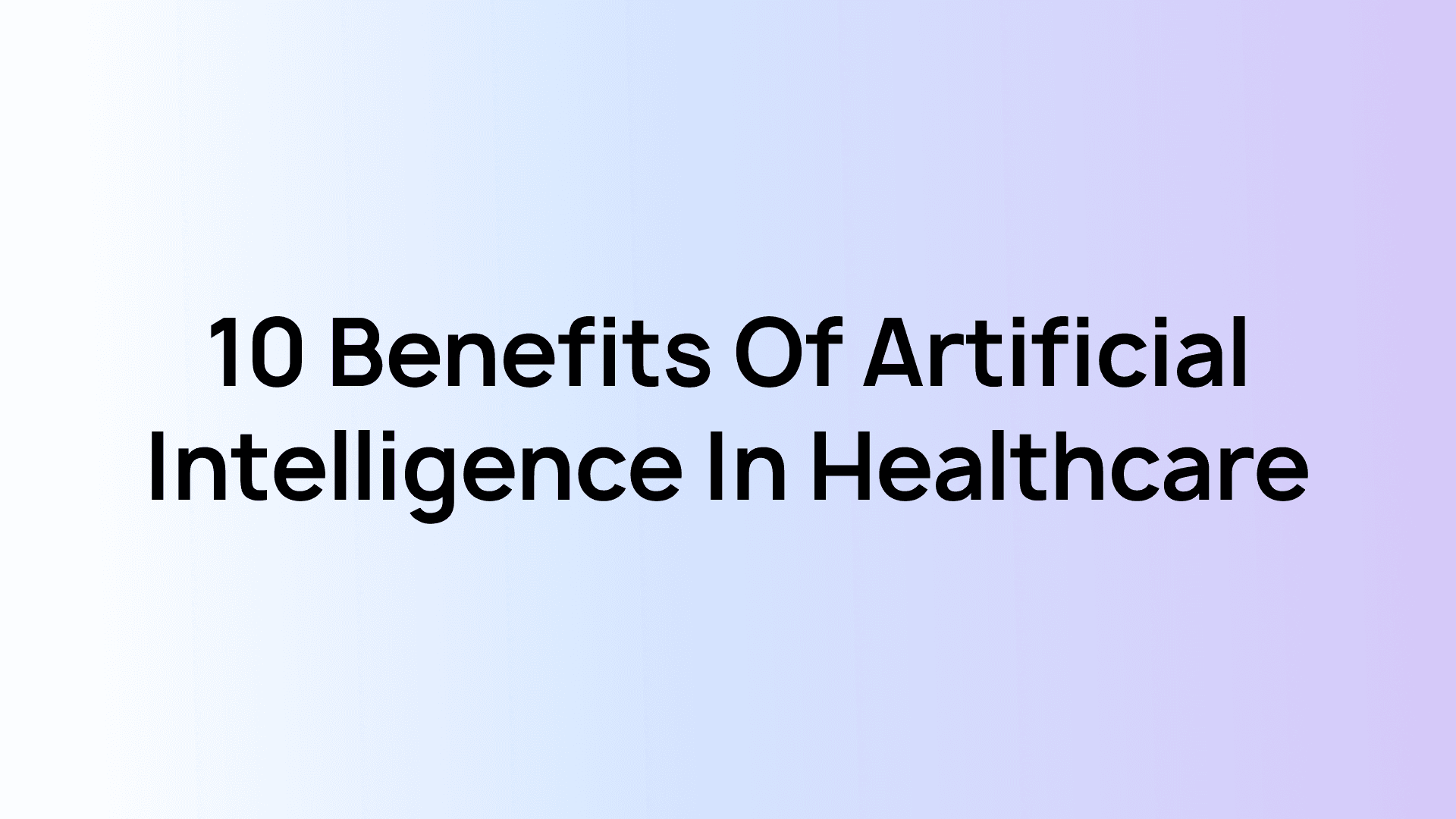
Exploring how AI is reshaping care delivery, documentation, and decision-making
Artificial intelligence (AI) is transforming the healthcare landscape. From improving diagnostic accuracy to streamlining operations, AI-driven tools are helping providers deliver better care, reduce errors, and manage administrative complexity.
This article explores 10 powerful benefits of artificial intelligence in healthcare—grounded in real-world use cases across clinics, hospitals, and health systems.
1. Improved Diagnostics
AI has transformed the diagnostic process, enhancing speed and precision across specialties. Machine learning algorithms trained on vast datasets can detect anomalies in X-rays, MRIs, and pathology slides with accuracy that often matches — or even exceeds — human experts. From early cancer detection to rare disease identification, AI systems help clinicians catch what might otherwise be missed. These systems continuously learn, incorporating new cases and evolving best practices. The result? Fewer misdiagnoses and faster treatment paths. By reducing diagnostic errors, AI not only improves outcomes but also mitigates malpractice risk and lowers the cost of care.
2. Streamlined Administrative Tasks
Healthcare professionals spend a disproportionate amount of time on documentation, billing, and compliance workflows — often more than on patient care. AI automates these repetitive, rules-based tasks, including prior authorizations, appointment scheduling, and insurance verification. Intelligent automation platforms, like those developed at XY.AI Labs, integrate seamlessly into front and back office workflows. By reducing administrative burdens, clinics can increase throughput, reduce errors, and lower staffing overhead — all while giving teams back precious time.
3. Personalized Treatment Plans
AI helps physicians tailor treatments to each patient’s unique profile — from genetics to lifestyle. Predictive analytics, powered by deep learning models, can determine how different cohorts respond to certain drugs or interventions. For example, AI may predict how a diabetic patient with specific comorbidities will respond to a new therapy based on similar cases. This individualized approach improves efficacy, minimizes side effects, and avoids unnecessary procedures. As personalized medicine becomes the standard of care, AI is proving essential in making it scalable and data-driven.
4. Remote Patient Monitoring
Remote care is no longer a nice-to-have — it’s a necessity. AI enables continuous monitoring through smart devices and wearables that track vitals like heart rate, blood sugar, and oxygen levels. These systems flag abnormalities in real time and alert care teams before issues escalate. This is particularly impactful for managing chronic conditions and post-operative recovery. By reducing unnecessary ER visits and enabling early interventions, AI-powered remote monitoring supports a proactive model of care — improving patient outcomes and lowering costs.
5. Enhanced Patient Engagement
AI-powered chatbots, virtual assistants, and automated reminders improve patient communication, appointment adherence, and follow-up compliance. These systems provide 24/7 access to answers and scheduling — helping patients feel heard and supported between visits. Platforms support continuous engagement without increasing staff workload. This translates into higher satisfaction, better care plan compliance, and reduced readmission rates — all while fostering a sense of trust and connection between patients and providers.
6. Efficient Medical Documentation
Documentation remains a major pain point in healthcare — contributing significantly to clinician burnout. AI solutions can now transcribe, summarize, and categorize clinical notes during or after patient visits. This not only saves time but also improves accuracy and standardization across providers. XY.AI Labs uses natural language processing (NLP) models to generate structured notes in real time, allowing physicians to maintain eye contact and focus on patients rather than screens. The result is more human encounters — and better records.
7. Faster Claims Processing
AI speeds up the revenue cycle by automating everything from coding to claims tracking. Predictive models can identify incomplete or error-prone claims before submission, reducing denials and the need for rework. XY.AI Labs uses intelligent agents to optimize this process — flagging documentation gaps, accelerating appeals, and reducing manual overhead. Practices get paid faster, and administrators can focus on high-impact tasks instead of chasing paperwork.
8. Predictive Analytics for Population Health
AI enables health systems to move from reactive to predictive care. By analyzing historical and real-time data, AI can flag at-risk populations — like patients likely to develop heart disease or experience complications from chronic conditions. These insights help care teams intervene early, plan resource allocation, and design preventive programs that improve outcomes at scale. Predictive analytics is also crucial for value-based care models, where success depends on avoiding costly interventions before they’re needed.
9. Optimized Staffing and Resource Allocation
AI helps hospitals and clinics forecast demand and adjust staffing accordingly. For example, predictive models can anticipate seasonal surges, ED volumes, or even radiology backlog — helping allocate nurses, beds, or OR time proactively. This reduces patient wait times, burnout among clinical staff, and operational bottlenecks. In a sector where every resource is stretched, AI brings much-needed elasticity and foresight.
10. Accelerated Drug Development and Research
Bringing a new drug to market is time-intensive and expensive — but AI is transforming this process. Machine learning models can identify promising compounds, simulate trials, and analyze outcomes at unprecedented speed. Researchers now use AI to repurpose existing drugs, personalize trial cohorts, and predict side effects early. As healthcare merges with biotech, AI is becoming an indispensable partner in discovery.
Final Thought: Giving Healthcare the Gift of Time
At XY.AI Labs, we’re building Agentic AI systems to automate, augment, and predict across the entire healthcare workflow — from front desk to final claim. By reducing administrative drag and unlocking clinical insight, our goal is simple: to give healthcare teams back the gift of time, so they can focus on what matters most — caring for patients.
Book a Demo
See how AI Agents can transform your operations
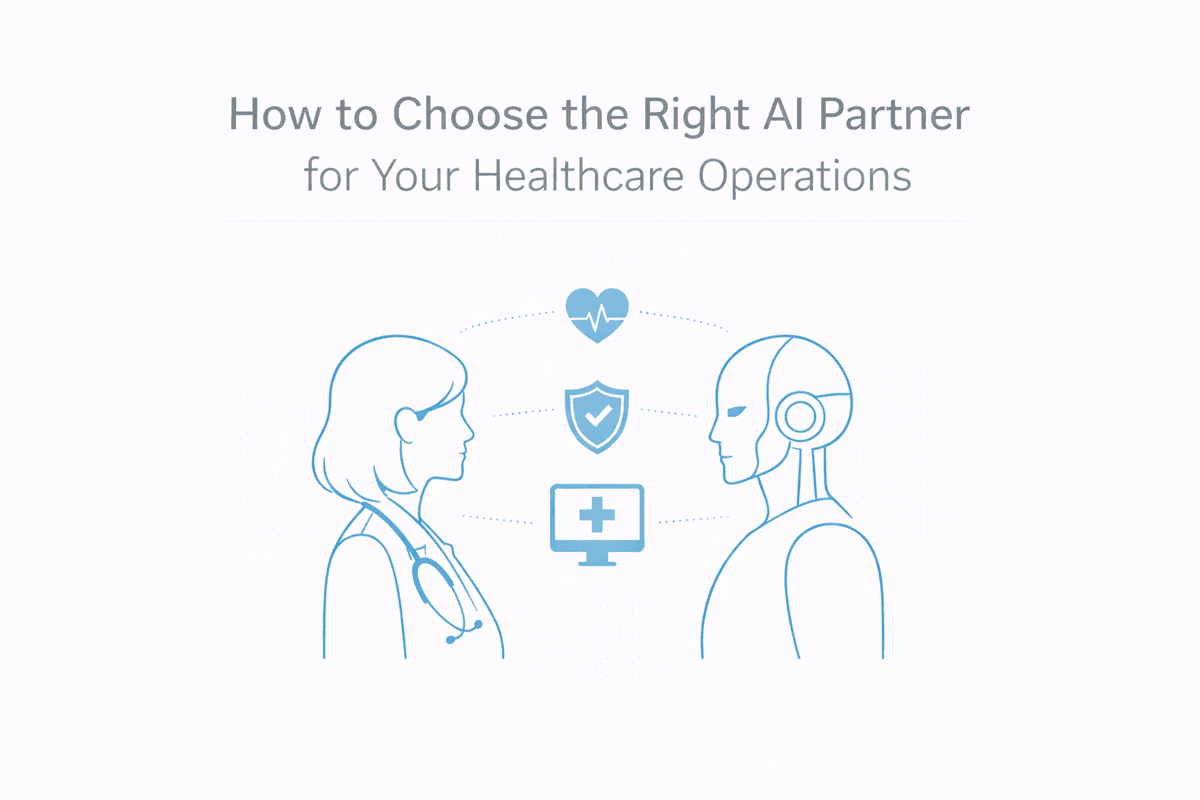
How to Choose the Right AI Partner for Your Healthcare Operations
XY.AI Labs Team
February 5, 2026
Reading Time5 mins

Have We Been Here Before? A Thought on AI Infrastructure
Sam De Brouwer
January 29, 2026
Reading Time5 mins

Finally, Healthcare Is Becoming a Learning System with AI as its Catalyst
Sam De Brouwer
December 19, 2025
Reading Time7 mins
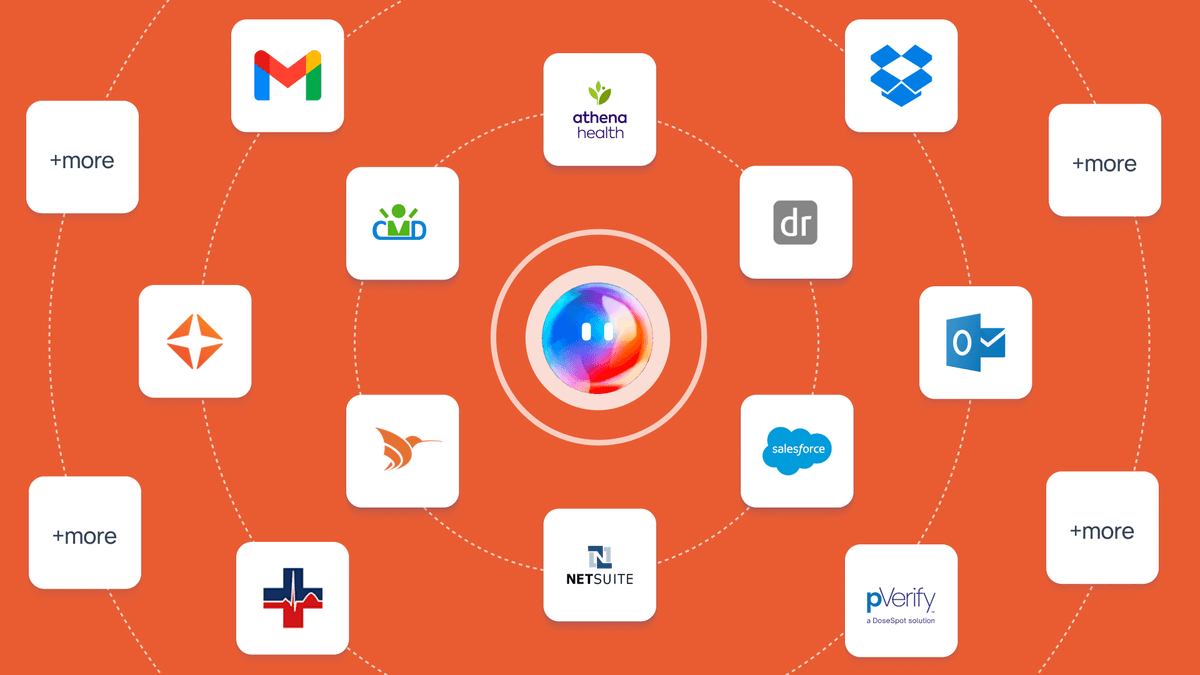
Connect Healthcare Systems with Agentic AI
XY.AI Labs Team
November 24, 2025
Reading Time8 mins
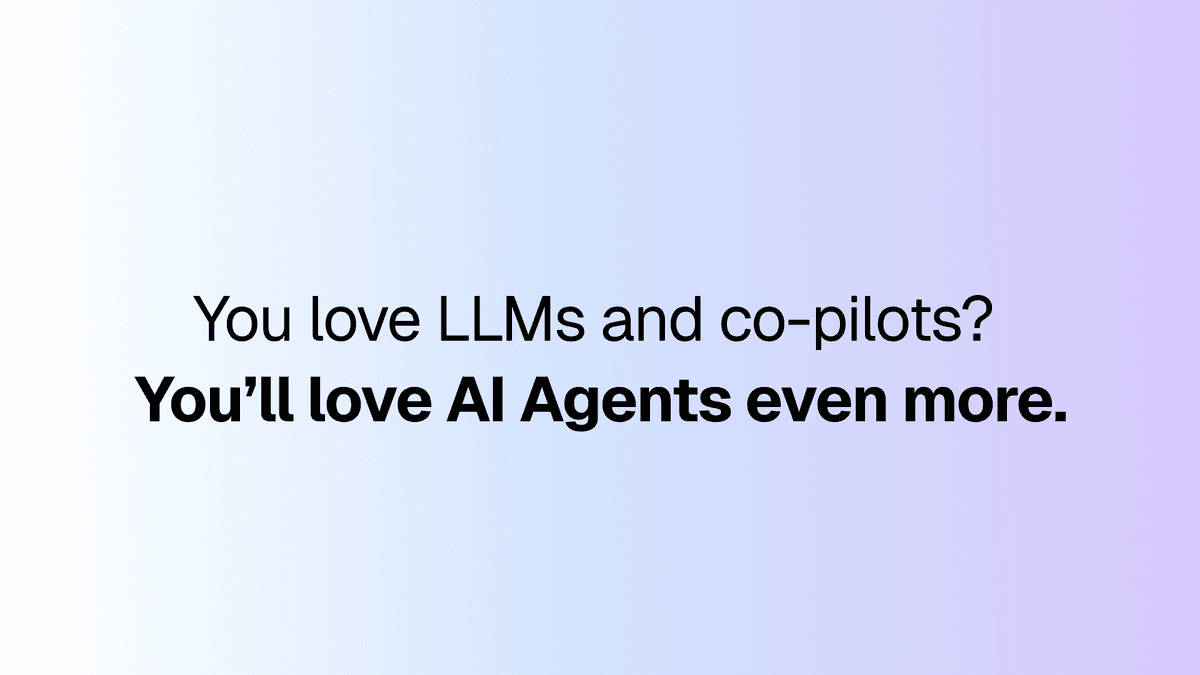
You love LLMs and co-pilots? You'll love AI Agents even more.
Sam De Brouwer
November 13, 2025
Reading Time10 mins

Why I'm Building for the Overlooked Majority of Healthcare
Sam De Brouwer
November 10, 2025
Reading Time6 mins
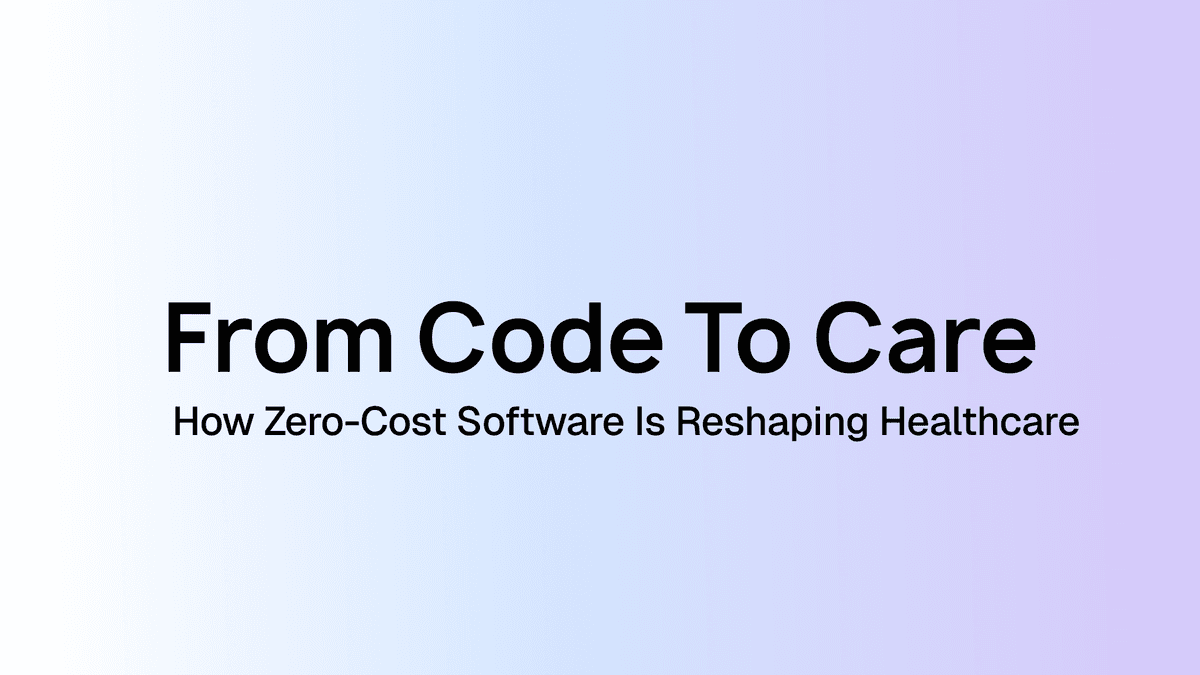
From Code to Care: How Zero-Cost Software Is Reshaping Healthcare
Sam De Brouwer
October 13, 2025
Reading Time8 mins
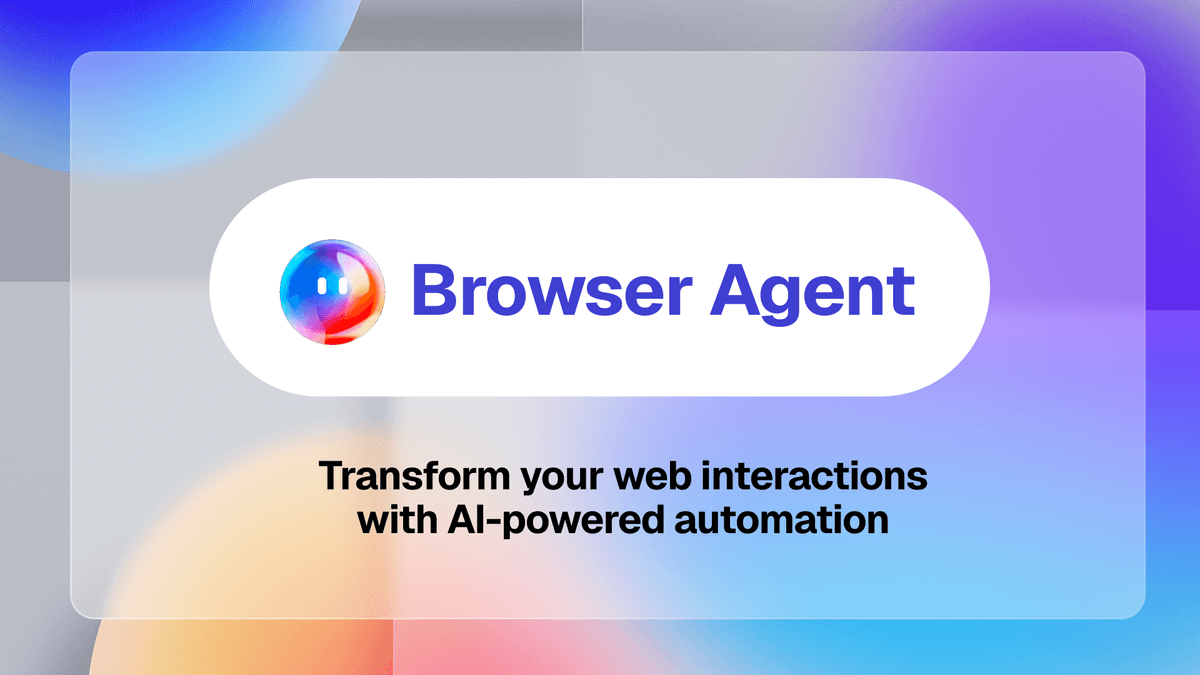
From Clicks to Care: Reinventing Healthcare Workflows with Our XY.AI Multimodal Browser Agents
Scott Cressman
September 12, 2025
Reading Time5 mins
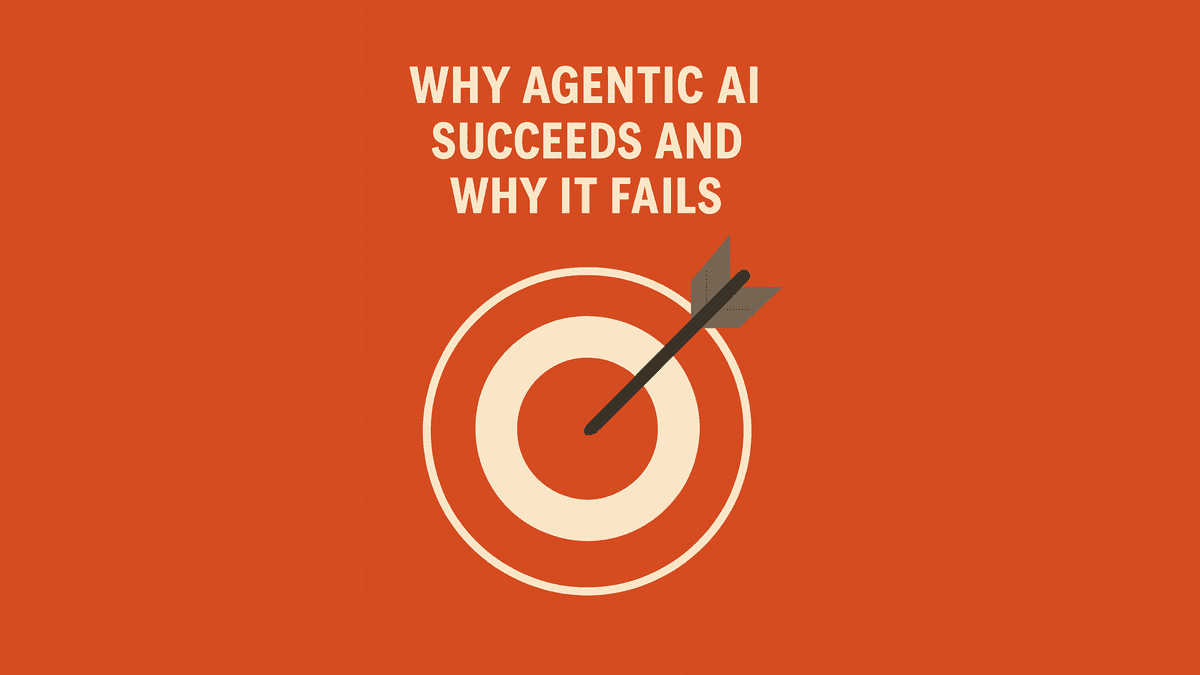
Tough conversations about success and failure are not new in AI
Sam De Brouwer
August 28, 2025
Reading Time3 mins
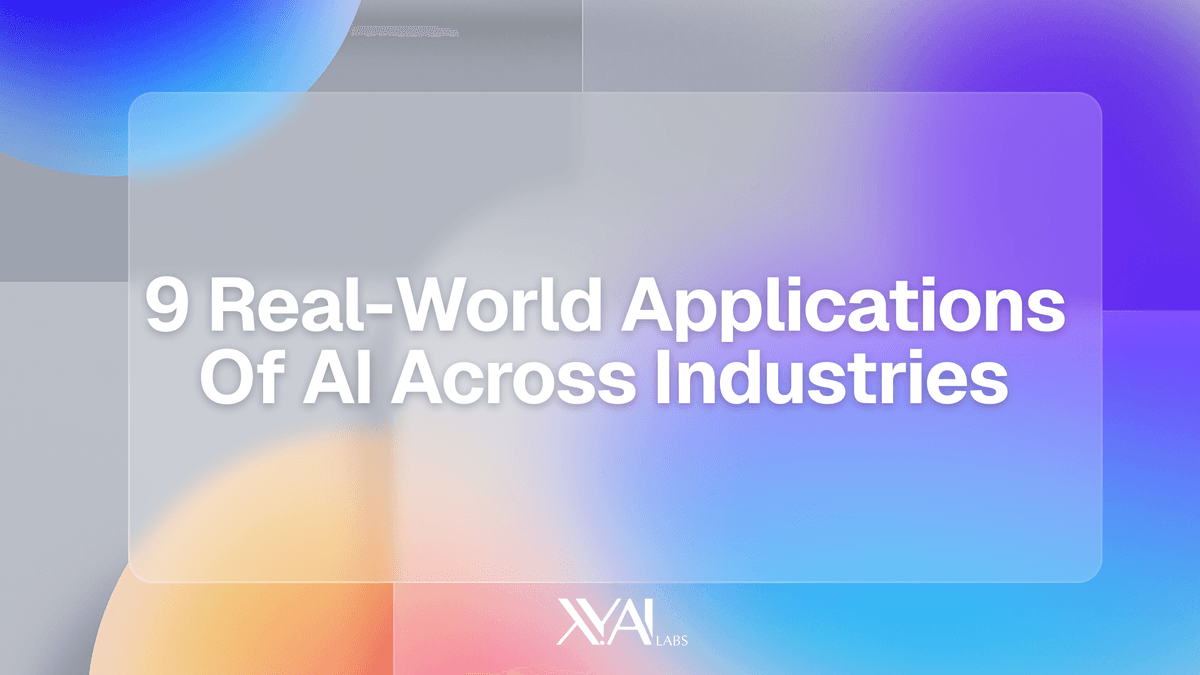
9 Real-World Applications of AI Across Industries
XY.AI Labs Team
August 24, 2025
Reading Time10 mins
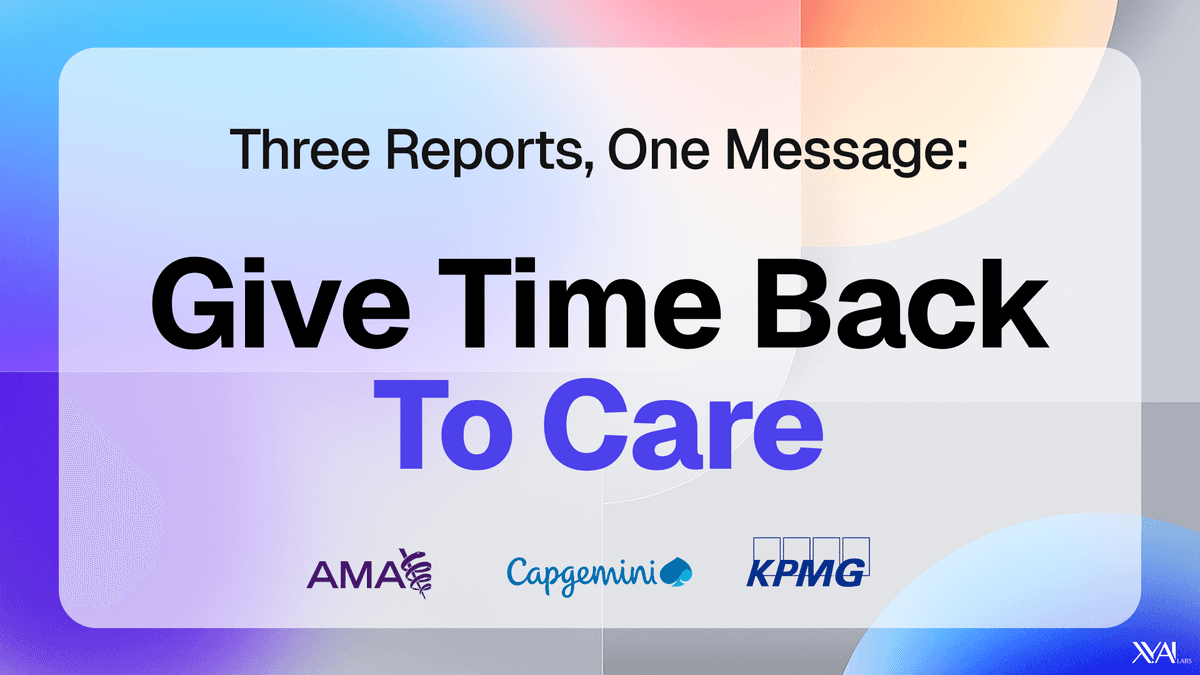
Three Reports, One Message: Give Time Back to Care
XY.AI Labs Team
August 22, 2025
Reading Time2 mins
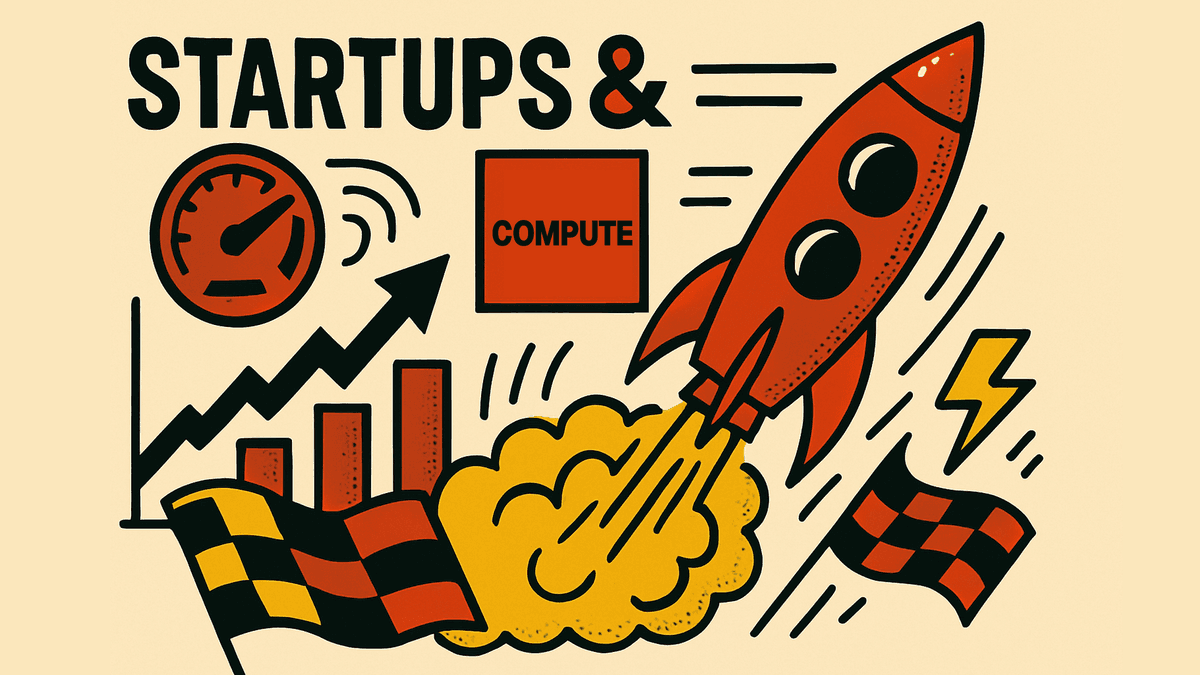
What Free Compute Signals About a Startup like XY.AI Labs?
Sam De Brouwer
August 14, 2025
Reading Time4 mins
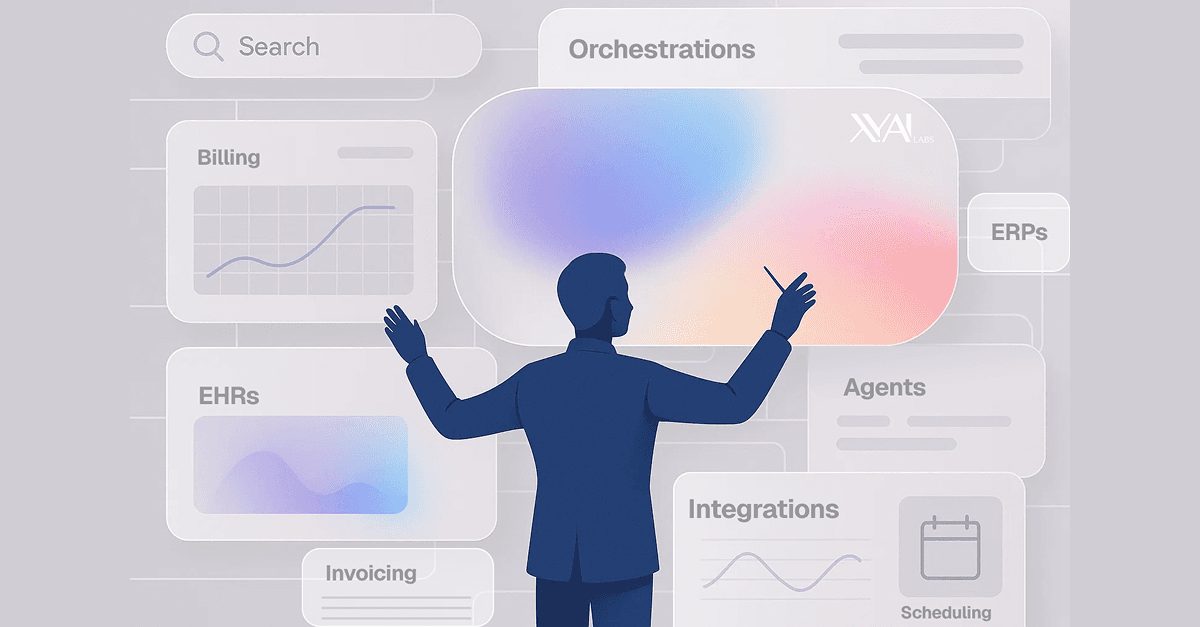
What We're Learning From Our Latest Integrations
Sam De Brouwer
July 31, 2025
Reading Time6 mins
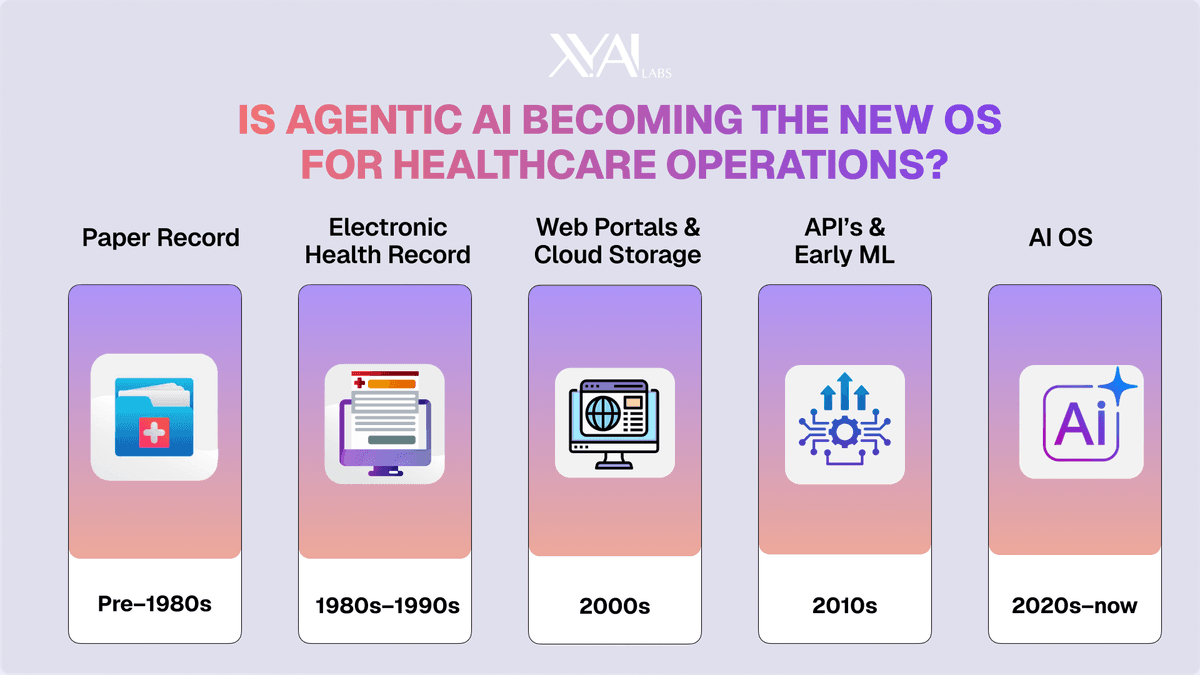
Is Agentic AI Becoming the New OS for Healthcare Operations?
Sam De Brouwer
July 10, 2025
Reading Time4 mins
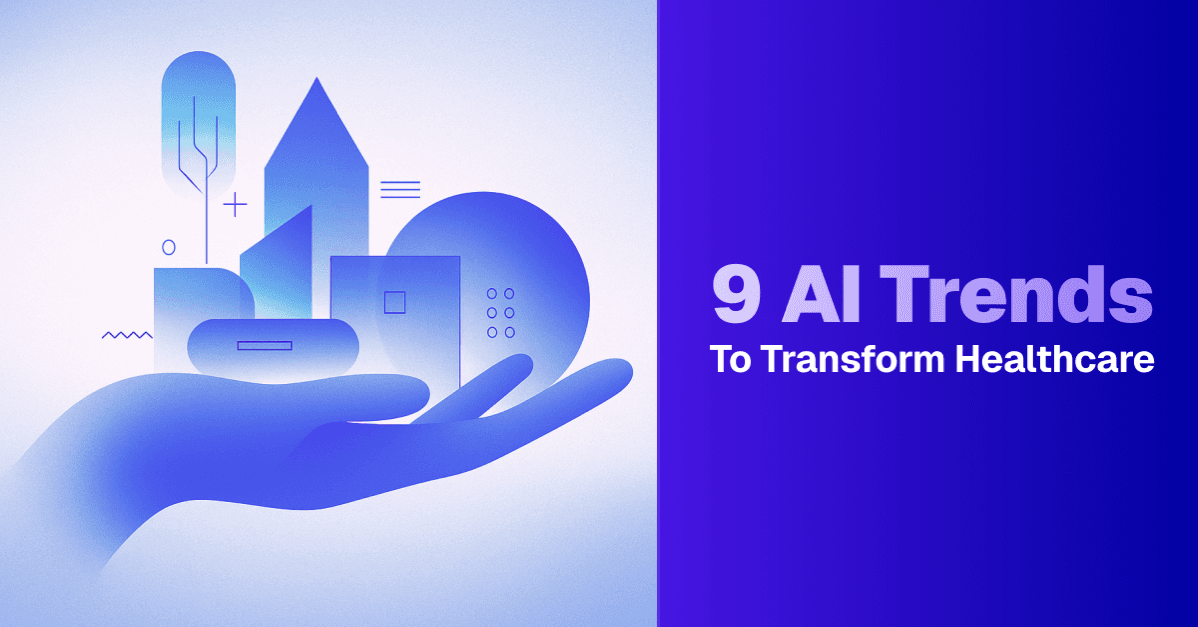
9 AI Trends To Transform Healthcare and Medicine And Why They're Closer Than You Think
XY.AI Labs Team
June 10, 2025
Reading Time5 mins
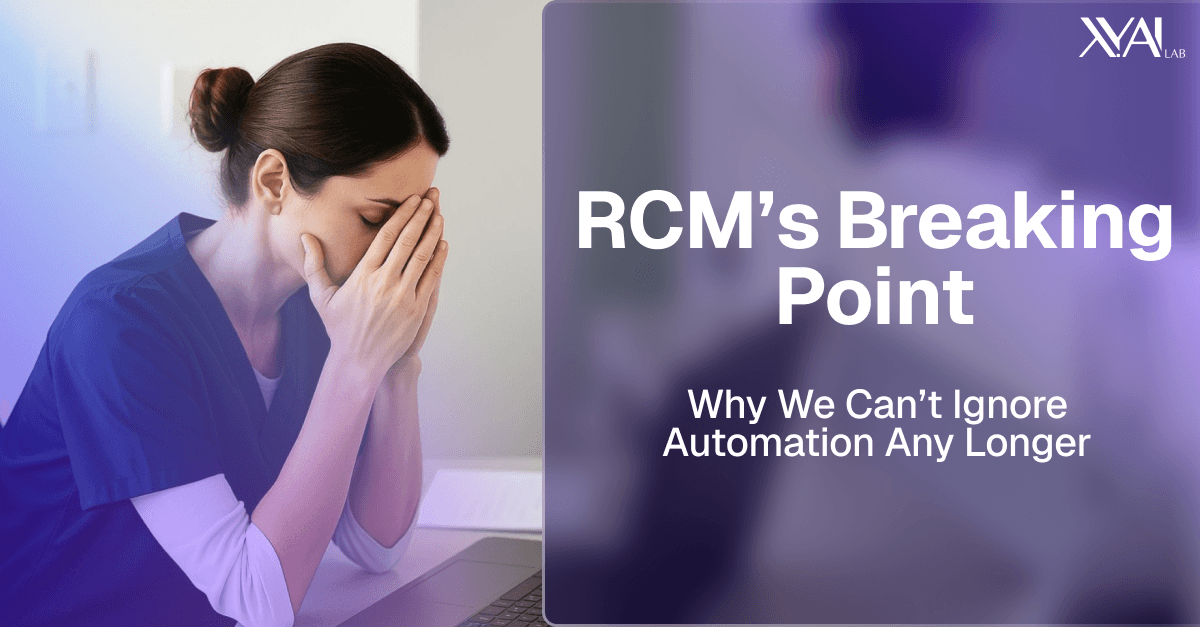
What I am Learning on the Front Lines of RCM in Healthcare - and Why We Can't Ignore Automation Any Longer
Sam De Brouwer
May 6, 2025
Reading Time8 mins
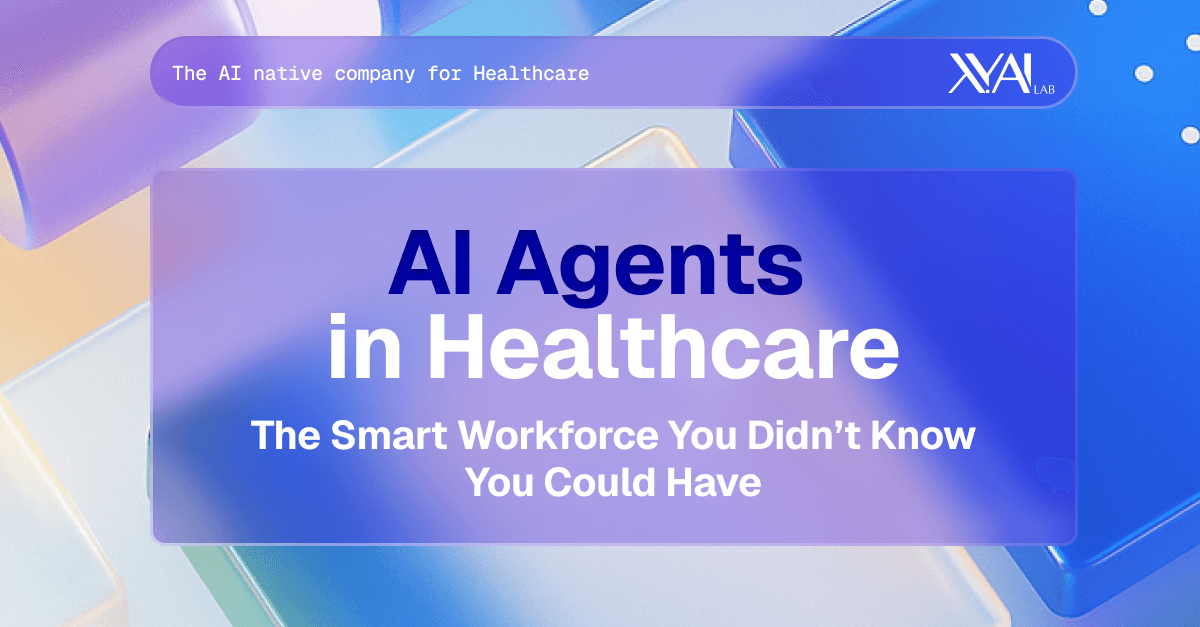
AI Agents in Healthcare: The Smart Workforce You Didn't Know You Could Have
Scott Cressman
April 17, 2025
Reading Time8 mins
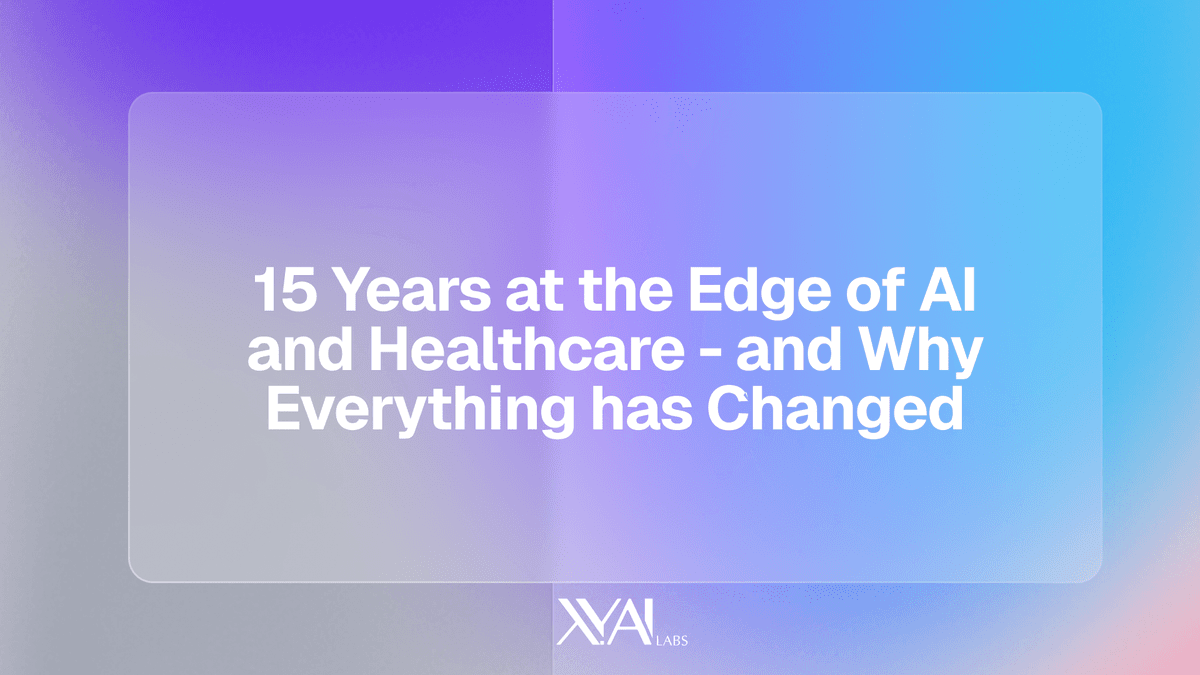
15 Years at the Edge of AI and Healthcare - and Why Everything has Changed
Sam De Brouwer
